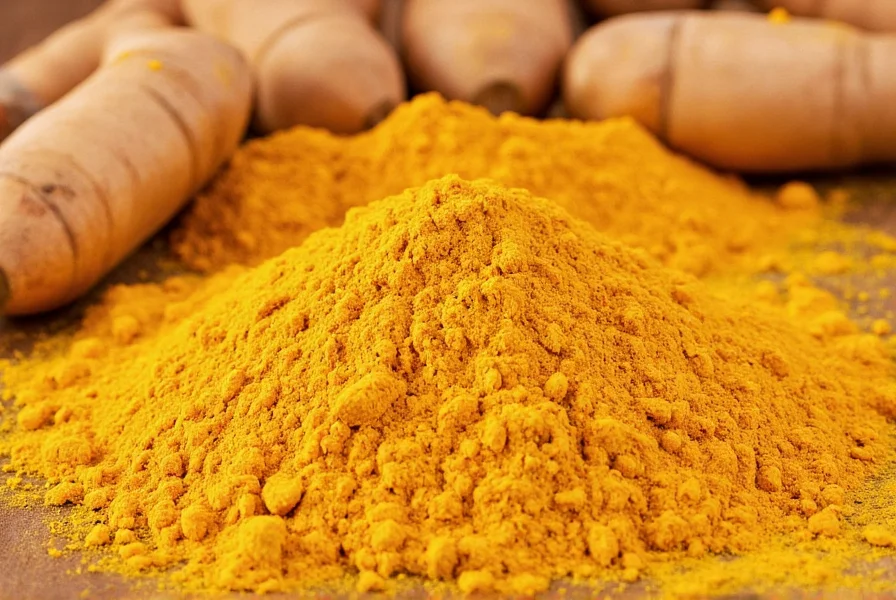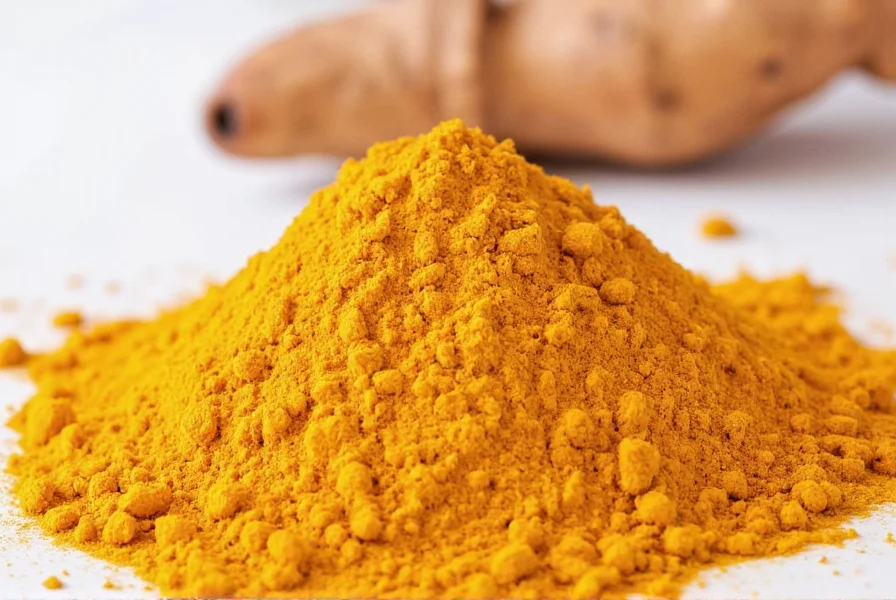Understanding the correct turmeric powder pronunciation helps you communicate confidently about this popular spice in culinary, health, and wellness contexts. Many people struggle with this word due to its unusual spelling and Latin origins, leading to common mispronunciations that can cause confusion.
Breaking Down Turmeric Powder Pronunciation
The word \"turmeric\" contains three syllables with specific stress patterns that determine its proper pronunciation:
| Syllable | Phonetic Spelling | Emphasis Level | Common Sound Reference |
|---|---|---|---|
| Tur | TER | Strong (primary) | Like \"turn\" without the \"n\" |
| mer | mur | Medium | Like \"hurricane\" second syllable |
| ic | ik | Light | Like \"chick\" without the \"ch\" |
International Phonetic Alphabet (IPA) Guide
For precise how to pronounce turmeric powder correctly reference, the International Phonetic Alphabet representation is /ˈtɜːr.ɪ.mer.ɪk/. This standardized system helps language learners understand exactly how each sound should be produced.
The IPA breaks down as:
- /ˈtɜːr/ - Stressed first syllable with the \"er\" sound
- /ɪ/ - Short \"i\" as in \"bit\"
- /mer/ - \"m\" sound followed by \"er\"
- /ɪk/ - Short \"i\" followed by hard \"k\"
Common Turmeric Pronunciation Mistakes
Many people make these errors when attempting the correct way to say turmeric in cooking situations:
- \"Tur-MER-ik\" - Incorrectly emphasizing the second syllable
- \"Tur-MER-ick\" - Adding an extra \"k\" sound at the end
- \"Tur-MARE-ik\" - Mispronouncing the second syllable as \"mare\"
- \"Toor-MER-ik\" - Using a long \"oo\" sound instead of short \"ur\"
These mispronunciations often occur because English speakers try to make sense of the unusual \"-meric\" spelling pattern, which doesn't follow typical English pronunciation rules.

Word Origin and Its Impact on Pronunciation
Understanding the turmeric root vs powder pronunciation history provides insight into why it's said this way. The word \"turmeric\" comes from the Latin \"terra merita\" (meaning \"meritorious earth\"), referring to the spice's yellow color resembling soil. Over time, this evolved through Arabic (\"kurkum\") and Old English (\"turmerick\") before settling on its current form.
This linguistic journey explains the disconnect between spelling and pronunciation. The \"u\" takes its sound from the Old English adaptation rather than following modern English patterns, while the \"r\" sounds reflect its Latin roots.
Using Turmeric in Context
Here are examples demonstrating proper common turmeric pronunciation mistakes correction in everyday usage:
- \"I added a teaspoon of TER-uh-mer-ik to my golden milk recipe.\" (Correct)
- \"The TER-uh-mer-ik gave the curry its distinctive yellow color.\" (Correct)
- \"Would you like me to sprinkle some TER-uh-mer-ik on your roasted vegetables?\" (Correct)
Notice how the emphasis remains consistently on the first syllable regardless of sentence position. This consistency helps listeners recognize the word even in noisy environments or when spoken quickly.
Related Terms and Their Pronunciations
When discussing turmeric spice pronunciation guide topics, you'll often encounter these related terms:
- Curcumin (kɜːrˈkjuː.mɪn) - The active compound in turmeric: \"ker-KOO-min\"
- Curry powder (ˈkɜːr.i ˌpaʊ.dər) - \"KER-ee POW-der\"
- Golden milk (ˈɡoʊl.dən mɪlk) - \"GOHldn MILK\"
- Curcuma longa (kɜːrˈkuː.mə ˈlɒŋ.ɡə) - The scientific name for turmeric plant

Regional Variations in Turmeric Pronunciation
While \"TER-uh-mer-ik\" represents the standard American English pronunciation, some regional variations exist:
- British English: Often pronounced \"TUR-muh-rik\" with a slightly softer first syllable
- Australian English: May feature a flatter \"i\" sound at the end: \"TER-uh-mer-ik\"
- Indian English: Closer to the original Sanskrit \"haridra\" (huh-rid-ruh), but adapted to \"tur-mur-ik\"
These variations reflect the global journey of turmeric from its origins in Southeast Asia to worldwide popularity. Understanding these differences helps avoid confusion in international culinary or health discussions.
Practicing Turmeric Pronunciation
To master the turmeric powder pronunciation guide, try these techniques:
- Say each syllable separately: \"TER\" - \"uh\" - \"mer\" - \"ik\"
- Clap on the stressed syllable: CLAP-uh-mer-ik
- Record yourself saying \"turmeric powder\" and compare with online dictionaries
- Use it in five different sentences to build muscle memory
- Practice with similar words: \"terrace,\" \"merit,\" \"click\"
Consistent practice over just a few days will make the correct pronunciation feel natural in your everyday speech.
Frequently Asked Questions
How do you pronounce turmeric in British English?
In British English, turmeric is typically pronounced \"TUR-muh-rik\" (with a slightly softer first syllable than American English). The primary emphasis remains on the first syllable, but the \"u\" sound is closer to \"fur\" rather than \"ter\". The final \"-ic\" often has a more clipped sound, almost like \"-ick\".
Is it \"tur-MER-ic\" or \"TER-ur-mer-ic\"?
Neither is completely correct. The accurate pronunciation is \"TER-uh-mer-ik\" with primary emphasis on the first syllable. Many people mistakenly emphasize the second syllable (\"tur-MER-ic\"), but this is considered a common mispronunciation. The \"u\" in the first syllable sounds like the \"u\" in \"turn\", not like \"ur\" in \"hurt\".
Does turmeric powder pronunciation differ from turmeric root pronunciation?
No, the pronunciation remains identical whether referring to turmeric powder or turmeric root. Both are pronounced \"TER-uh-mer-ik\". The word \"turmeric\" describes the substance regardless of its form. Some people mistakenly alter the pronunciation when adding \"powder\" or \"root\", but the core word maintains consistent pronunciation.
Why is turmeric so hard to pronounce?
Turmeric is challenging to pronounce because its spelling doesn't follow standard English phonetic patterns. The word evolved from Latin \"terra merita\" through multiple languages, creating a disconnect between how it's spelled and how it's said. The \"-meric\" ending particularly confuses English speakers who expect it to rhyme with \"America\", but in turmeric, it's pronounced \"mer-ik\".
How do chefs pronounce turmeric?
Professional chefs typically use the standard \"TER-uh-mer-ik\" pronunciation with clear emphasis on the first syllable. In culinary settings, precise pronunciation matters for clear communication in fast-paced kitchen environments. Many cooking shows and culinary schools specifically teach the correct pronunciation to avoid confusion with similar-sounding ingredients.










 浙公网安备
33010002000092号
浙公网安备
33010002000092号 浙B2-20120091-4
浙B2-20120091-4